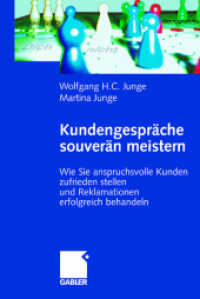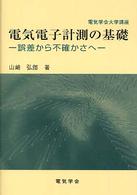Full Description
This book is an important contribution to the understanding of the complex education policies of the twenty-first century. It unites world renowned comparatists of education in an effort to respond to the challenges raised by the multidimensional and multi-scalar aspects of education policies. In their attempt to decipher the tangled world of education policies, the authors underline the power of numbers, the power of networks and the power of new concepts and methodologies. The power of numbers - education through numbers via students' assessments and national or international testing impacts upon our educational choices and reinforces its instrumental aspects. The power of networks - sheds light on the complexity of the education global governance network by focusing on how international governmental organisations (IGOs), such as UNESCO, the OECD and the World Bank carry out policy and on the intricate ways an educational concern becomes part of the international agenda. The power of concepts and methods - policymaking is increasingly dynamic and involves many different stakeholders, including states, private corporations, IGOs, scholars and non-profit organisations. Contributors to this volume have developed new conceptual and methodological perspectives to study the circulation of educational models worldwide. A relational notion of space, the concept of 'diaspora' as a space of relations of social actors or the global comparative approach and a methodology drawn on actors-network theory are among the propositions yielded by the authors in order to make sense of and grasp the complexity of education policies today. This book was originally published as a special issue of Globalisation, Societies and Education.
Contents
Introduction. The power of numbers and networks: understanding the mechanisms of diffusion of educational models 1. Standards are good (for) business: standardised comparison and the private sector in education 2. The power of numbers: the adoption and consequences of national low-stakes standardised tests in Israel 3. Global polity in adult education and UNESCO: landmarking, brokering and framing policy 4. Awareness-raising, legitimation or backlash? Effects of the UN Convention on the Rights of Persons with Disabilities on education systems in Germany 5. Interpreting the circulation of educational discourse across space: searching for new vocabularies 6. Global argonauts: returnees and diaspora as sources of innovation in China and Israel 7. The development of the International Baccalaureate in Spanish speaking countries: a global comparative approach








